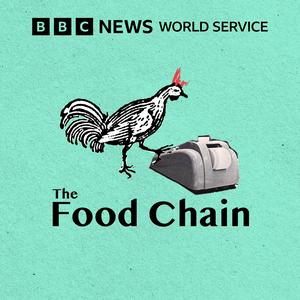Fermented foods are fashionable – kimchi, kefir, kombucha – they're all having a moment, many thousands of years on from where they were first produced. But how much do you know about how they're made? Do you know your SCOBY from your kefir grain?
In this episode, fermenting novice Ruth Alexander goes on a quest to find out more about this ancient way of preserving food; how to do it yourself, why you might want to, and what it's doing for our guts.
Follow along as she experiments with making her own kefir, and talks to fermentation guru Sandor Katz about how to get started and whether there's anything that can't be fermented.
Scientist Professor Gabriel Vinderola explains what's known about the microbes behind it all and how they affect our health while Kheedim Oh and his mum Myung Oh talk about how they've brought the family recipe for kimchi to a US audience via their business, Mama O's Kimchi. (Kimchi on pizza anyone?)
And with the help of Adam Goldwater from UK based Loving Foods Fermented, Ruth discovers how kombucha is made, and the alien like SCOBY powering the process.
Produced by Lexy O'Connor. The sound engineer was Andrew Mills.
If you would like to get in touch with the show, please email:
[email protected].
Image: A woman in an apron is holding a jar of brightly coloured fermenting vegetables, with orange carrots and purple cabbage tightly packed in. Credit Getty/Migrogen


